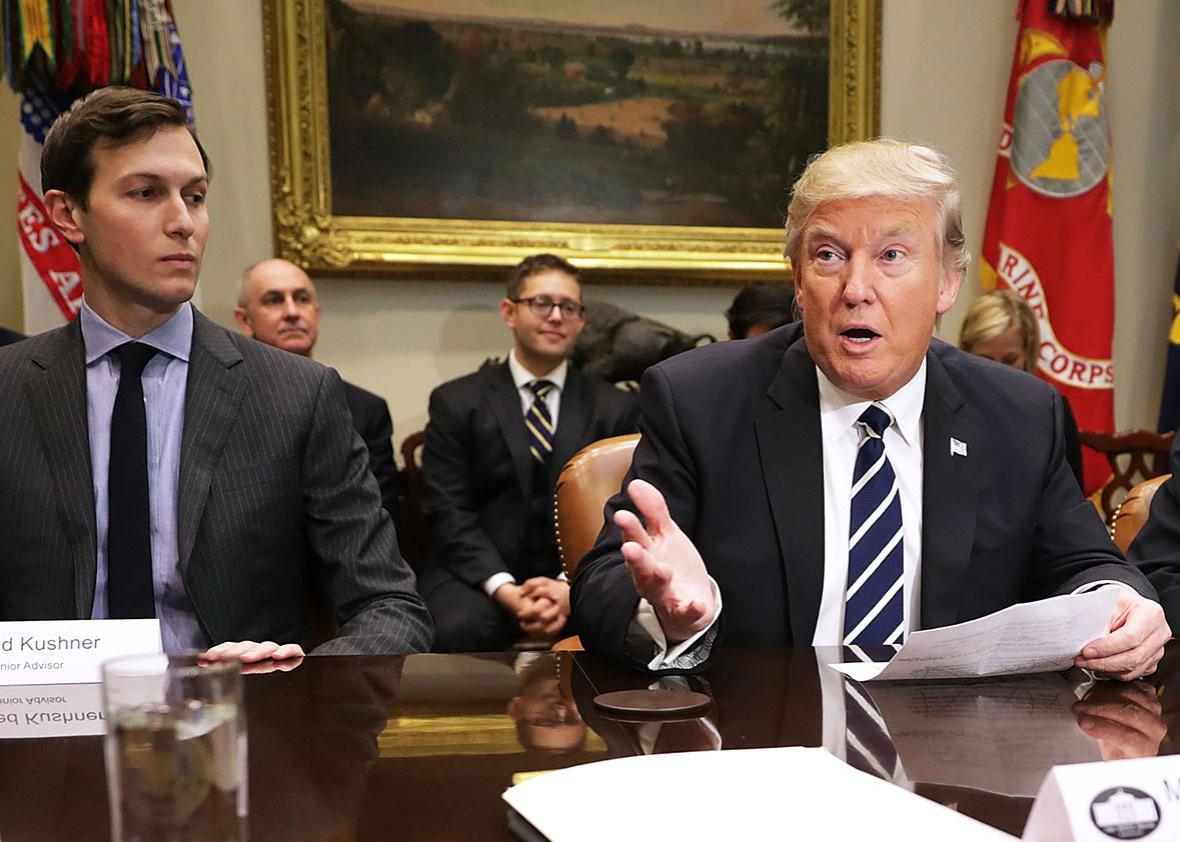When do we get to say out loud that the Trump Administration has a very serious problem with Jews, Judaism, and all things Jewish and that it has now risen to the level that even saying the word Jew has become problematic?
On Monday, 11 Jewish Community Centers across the United States were targeted with bomb threats and evacuations, the fourth round of such threats in 2017. Outside St. Louis, more than 170 graves were desecrated and toppled in a Jewish cemetery.
The White House’s statement on the JCC threats read in full:
Hatred and hate-motivated violence of any kind have no place in a country founded on the promise of individual freedom. The President has made it abundantly clear that these actions are unacceptable.
It’s worth noting that terrorism and vandalism have absolutely nothing to do with “individual freedom” and that threatening to kill small babies and elderly people is an affront to human safety and dignity, not just “freedom.” The White House statement, you also might have noticed, did not contain the words Jewish, Jewish Community Center, or terrorism or anti-Semitism. This has become something of a tradition for the Trump administration, which failed to mention the existence of Jewish victims in a message issued on Holocaust Remembrance Day. Last week, Trump fielded a question about the rise in anti-Semitic incidents during a press conference with Israeli Prime Minister Benjamin Netanyahu by making another rambling reference to his Electoral College victory and his Jewish daughter and by dismissing the question as unfair. And on Thursday, in the strangest performance to date, Trump told a Jewish reporter to sit down and accused him of lying when he was asked a softball question about the rise of anti-Jewish hate.
On Tuesday morning, responding to increasing pressure to say the words aloud, Trump called anti-Semitism “horrible” and “a very sad reminder of the work that still must be done to root out hate and prejudice and evil.” In a Facebook post, the executive director of the Anne Frank Center for Mutual Respect called this “a pathetic asterisk of condescension after weeks in which he and his staff have committed grotesque acts and omissions reflecting anti-Semitism, yet day after day have refused to apologize and correct the record.”
Indeed, to be grateful that Trump finally said the bare minimum at the latest possible moment he could say it is to miss what was most horrifying about his assorted romps with anti-Semitism. You may have missed it amid the distraction of Trump’s insult to a Jewish reporter, but in the same press conference, SiriusXM’s Jared Rizzi circled back to the hate crimes question. “I’ll follow up on my colleague’s question about anti-Semitism,” Rizzi said. “It’s not about your personality or your beliefs. We’re talking about a rise in anti-Semitism around the country. Some of it by supporters in your name. What can you do to deter that?”
Trump’s reply: “Some of it is written by our opponents. You do know that? Do you understand that? You don’t think anybody would do a thing like that?” In case he wasn’t being sufficiently clear, he added, “Some of the signs you’ll see are not put up by the people that love or live Donald Trump. They’re put up by the other side, and you think it’s like playing it straight? No. But you have some of those signs, and some of that anger is caused by the other side. They’ll do signs, and they’ll do drawings that are inappropriate. It won’t be my people. It will be the people on the other side to anger people like you.”
Allison Kaplan Sommer, commenting at Haaretz, explained over the weekend that this—and not the insults directed to a Jewish reporter—was the real story about Trump and anti-Jewish hate speech: “Trump’s words echoed the theory that the threats to Jewish community centers and other anti-Semitic incidents have been contrived to support the premise that Trump’s presidency is ushering in greater racism.” These “false flag” claims are rampant among anti-Semites and have been pushed by David Duke himself. “I wonder who could be placing all those calls?” Duke tweeted recently, referencing the threats to Jewish community centers. “Seems they’d be able to track that down rather easily … such a dramatic photo.”
So please don’t be too grateful that President Trump has finally said that anti-Semitism is “horrible.” It’s more notable and more telling that he has also given voice and cover to the vile argument that these attacks and threats are not really happening to Jews or, worse, that Jews are doing this to their own communities in an effort to delegitimize Trump. The real question we should be asking Donald Trump today isn’t whether he deplores episodes of racial hatred. It should be whether he even believes they are happening or whether he truly thinks they are staged by his enemies to malign him.
